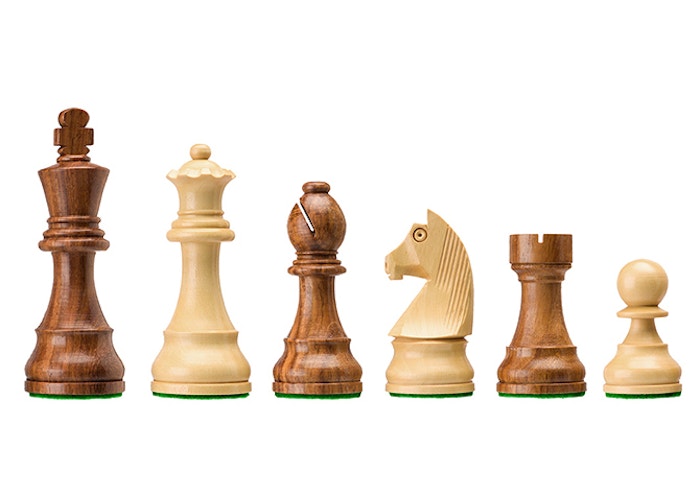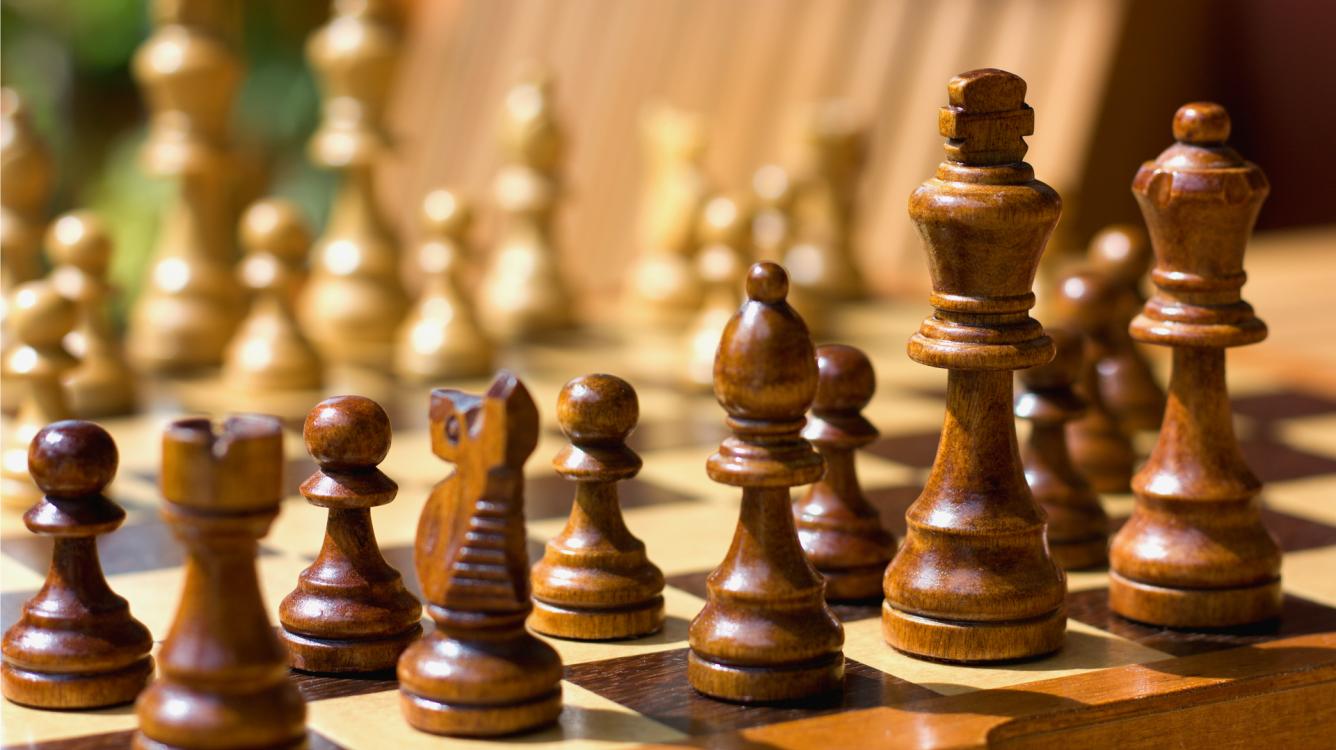Why You Need To Play Chess: The Advantages of Participating In This Ageless Pundit Difficulty
Chess is more than a simple video game; it works as an extensive mental workout that develops various cognitive abilities. Players participate in critical thinking and create problem-solving capabilities, which can have long-term benefits in daily life. The technique needed for improvement promotes perseverance and resilience. The real significance of chess lies not simply in its intellectual needs but in the links it cultivates within a neighborhood. Discovering these dimensions exposes much concerning why chess remains timeless.
Enhancing Cognitive Skills
Playing chess considerably improves cognitive abilities, making it a useful task for people of all ages. The video game needs tactical reasoning and foresight, calling for players to expect their challenger's relocations while formulating a winning approach. This mental workout sharpens emphasis and focus, essential components of cognitive feature.

Moreover, chess urges creativity, prompting players to check out cutting-edge strategies and unconventional approaches to the video game. As they navigate the chessboard, people create perseverance and strength, essential attributes for cognitive growth. Overall, the multifaceted cognitive benefits of chess make it an enhancing quest, promoting lifelong mental agility and intellectual interaction.
Enhancing Problem-Solving Abilities
Countless studies have shown that taking part in chess can substantially increase analytic capacities. The video game requires players to assess intricate settings and anticipate the challenger's steps, promoting vital thinking abilities. As they navigate numerous situations, chess players create the ability to review several outcomes and make calculated decisions under stress. This process boosts their capacity to strategy real-life issues with a structured state of mind.
Chess promotes the identification of patterns and the application of rational thinking, skills that are necessary in effective problem-solving. Players find out to evaluate dangers and incentives, fine-tuning their judgment in unclear circumstances. The repeated nature of chess play enhances these skills, permitting individuals to move their improved analytic capacities to scholastic and specialist contexts. Inevitably, chess functions as a beneficial device for anyone seeking to sharpen their logical skills and boost their total cognitive performance in challenging situations.
Growing Perseverance and Self-control
While taking part in chess can be an amazing experience, it also calls for a considerable degree of patience and discipline. Players need to find out to thoroughly take into consideration each relocation, evaluating prospective end results and methods. This thoughtful method promotes a state of mind that values long-term success over instant gratification. In chess, hasty decisions often lead to negative effects, strengthening the value of taking one's time to assess the board and expect an opponent's responses.

Self-control is further grown through regular method and research. Players often devote hours to improving their abilities, studying methods, and examining past video games. This commitment to grasping the video game instills a feeling of responsibility and determination, essential qualities that extend beyond the chessboard. Inevitably, the combination of persistence and technique not only improves a gamer's chess abilities however also adds to individual growth, furnishing people with important devices for steering difficulties in numerous aspects of life.
Promoting Creative Thinking and Imagination

Planning moves entails not just reasoning but likewise the ability to anticipate a challenger's reactions, encouraging gamers to visualize numerous paths and options. As gamers experiment with different strategies, they discover to innovate and adapt, improving their innovative problem-solving skills.
Additionally, the video game's intricacy invites players to check out unique concepts and methods, bring about individual designs of play. This expedition nurtures a feeling of creative expression, as each player crafts their own approach to challenges on the board. Inevitably, chess comes to be a canvas for imagination, enabling individuals to share their one-of-a-kind viewpoints while establishing their imaginative capabilities
Structure Social Connections and Community
Playing chess uses chances for individuals to network via events and regional chess clubs. These environments cultivate links among gamers, developing a sense of recreation center around a common interest. Engaging in these activities not only improves abilities yet likewise constructs long-term partnerships.
Networking Via Tournaments
When individuals engage in chess competitions, they frequently find themselves involved in a dynamic community of similar people. These events provide an outstanding platform for gamers to forge links, share techniques, and commemorate their enthusiasm for the game. Participating in pleasant competition fosters camaraderie, as gamers from varied backgrounds integrated to challenge each other. Networking possibilities abound, with lots of participants creating long lasting relationships that extend past the chessboard. Furthermore, these tournaments typically draw in sponsors and chess lovers, further improving the potential for specialist links. As gamers take part in discussions about techniques and experiences, they construct a network that can lead to future partnerships and possibilities within the chess world and beyond.
Local Chess Clubs

Offering a Fun and Involving Obstacle
Chess uses a distinctively promoting experience that captivates gamers of any ages, as it integrates strategic reasoning with the excitement of competition. This timeless video game provides a compelling challenge, urging individuals to think seriously and creatively. Each suit unravels as a battle of Related Site wits, where gamers should anticipate their challenger's steps while developing their own approaches.
The intellectual interaction chess offers is matched by its capacity to amuse. Players usually discover themselves immersed in the video game, losing track of time as they browse intricate positions and tactical dilemmas (Chess). This enhanced emphasis fosters a feeling of accomplishment, particularly when a challenging step causes success
Chess promotes social communication, allowing gamers to bond over common experiences and difficulties. The game's endless variants ensure that no two sessions are alike, keeping individuals passionate to refine their abilities and techniques. This vibrant blend of obstacle and enjoyment makes chess an alluring pursuit.
Often Asked Inquiries
Can Chess Be Played Online or in Person?
Chess can be played both online and face to face. Online platforms use players the benefit of completing versus opponents worldwide, while in-person games promote social communication and physical visibility, enhancing the total experience.
What Age Is Best to Begin Learning Chess?
Professionals recommend that children can begin learning chess as very early as age 5 or 6. At this age, they can comprehend standard principles, boosting cognitive abilities while promoting a love for the video game that lasts a lifetime.
Are There Chess Tournaments for Beginners?
Yes, there are chess competitions particularly developed for novices. These events offer a helpful atmosphere for beginner players to acquire experience, improve their skills, and delight in the competitive spirit of chess without dealing with advanced challengers.
How much time Does It Take to Come To Be Skillful at Chess?
Ending up being skilled at chess usually calls for constant practice over a number of months to years. Elements such as specific dedication, previous experience, and study of approaches considerably influence the moment needed to get to a proficient degree.
What Resources Are Offered for Understanding Chess Techniques?
Countless resources exist for finding out chess techniques, consisting of on the internet tutorials, publications by popular writers, chess apps, and interactive internet sites. Lots of gamers likewise gain from signing up with local clubs or taking part in on the internet discussion forums for visite site real-time insights.